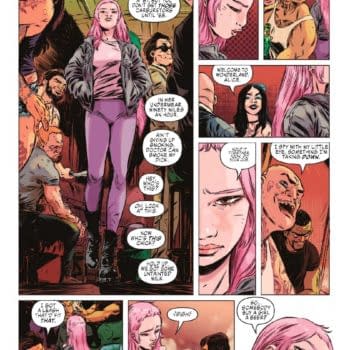Posted in: Movies | Tagged: asghar farhadi, donald trump, the salesman
Report: Due To Trump's Muslim Ban, Foreign Language Film Nominated Director Asghar Farhadi Can't Attend Oscars
Donald Trump's executive order forbidding refugees and travelers from seven Muslim countries from entering The United States may prevent director Iranian director Asghar Farhadi from attending the 2017 Oscars, according to several reports on the web, including from U.K.'s The Independent newspaper. Farhadi's film, The Salesman, is one of the nominees in the Best Foreign Language Film category, and he won an Oscar for his 2011 film A Separation. All of the reports appear to originate from a tweet by Trita Parsi, head of the National Iranian American Council, who said:
So far, there are no independent reports corroborating the news or a statement from Farhadi.
Trump's executive order, signed on Friday, suspends "entry into the United States, as immigrants and nonimmigrants, of such persons for 90 days from the date of this order (excluding those foreign nationals traveling on diplomatic visas, North Atlantic Treaty Organization visas, C-2 visas for travel to the United Nations, and G-1, G-2, G-3, and G-4 visas)." The ban affects seven Muslim countries identified as terrorism-prone in a transparent attempt to skirt past religious discrimination requirements to fulfill Trump's campaign promise of banning Muslims from entering the United States.
If true, it's possible that Farhadi could obtain special permission to enter the country, but would he want to, given the circumstances? We'd probably feel a little bit insulted by this whole thing, were it us.
Meanwhile, the most powerful person in the world has already moved on to more important matters:
Ladies and gentlemen, the president of the United States.
In addition to Oscar-winning and Oscar-nominated directors, 134 million other people are also barred entry to the United States as a result of the executive order, which is thought to be a temporary measure until more permanent policies are put in place to prevent people fleeing war and persecution from finding refuge in America, just as the founding fathers intended.

















